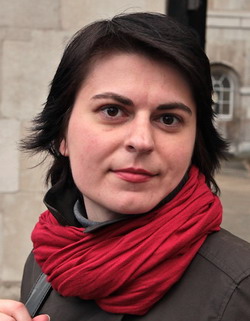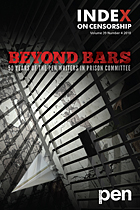6 Dec 2011 | Leveson Inquiry, Uncategorized
The Independent and The Bureau of Investigative Journalism are winning deserved praise for their exposé of lobbyists Bell Pottinger this morning.
Bureau journalists, posing as agents of the Uzbekistan government, recorded senior Bell Pottinger executives boasting of their access to government and media. Bell Pottinger has previously worked for regimes with dubious human rights records including the governments of Sri Lanka and Belarus. An excellent piece of work by all accounts, and the Independent and The Bureau promise more to follow.
Bell Pottinger has responded angrily. The Times reports that Lord Bell (chair of Bell Pottinger’s parent company Chime Communications) has taken the matter to the Press Complaints Commission, describing the covert recording as “unethical“.
It would be easy to dismiss this with a wry “Well he would, wouldn’t he?“, but as the Leveson Inquiry goes on, there appears to be more and more unease with the shadier methods of journalism, which include covert recording, and Lord Bell may be attempting to tap into this feeling.
It’s clear that being recorded without one’s knowledge isn’t very nice. But it’s also clear that the Bureau’s investigation is in the public interest, and this should be enough to justify it. Amid the furore over phone hacking, surveillance, blagging and the rest, we should be very careful not to throw the baby out with the bathwater. The murkier methods of the press have their place.
4 Nov 2011 | Europe and Central Asia, News
The smoke had barely cleared from the firebombed office of Charlie Hebdo magazine – attacked for publishing cartoons of Mohammed – when TIME magazine’s Bruce Crumley chose to criticise the satirists before the terrorist. James Kirchick denounces a too-familiar tendancy

(more…)
9 Aug 2011 | Uncategorized
 Journalist Natalia Radzina, who was beaten and imprisoned following last year’s disputed election, explains why she fled Belarus seeking political asylum
Journalist Natalia Radzina, who was beaten and imprisoned following last year’s disputed election, explains why she fled Belarus seeking political asylum
(more…)
10 Dec 2010 | Uncategorized

Beyond Bars
LETTER FROM THE OUTSIDE
Playwright Tom Stoppard on why he would never have been a writer in prison – and the importance of communicating with those who are
POWER OF THE PEN
Carole Seymour-Jones celebrates the achievements of 50 years of fighting for authors’ freedoms and explains why there is so much more work to be done
EYEWITNESS
Moris Farhi on Faraj Sarkoohi
TWO FOR THE ROAD
Maureen Freely on Harold Pinter and Arthur Miller’s infamous trip to Turkey and the pitfalls of intervening in another country’s troubles
SURVIVAL IN PRISON
Detained writers suffer from violence, humiliation and loneliness. Writing, often in secret, helps make sense of these terrible experiences, writes Anne Sebba
LIBERATING LANGUAGE
Mohamed Nasheed on how the Maldives has rejected the lexicon, along with the rule, of decades of dictatorship and rediscovered freedom of expression
DIALOGUE WITH DARKNESS
Arthur Koestler’s imprisonment marked a turning point in his thinking, writes Michael Scammell, and was one of the first campaigns to be a cause célèbre
DON’T TELL US WHAT TO WRITE
Margaret Atwood on why the mark of a truly free society is one that allows writers to speak with their own voice, not for causes, however worthy
WORDS WITHOUT BORDERS
As ideas move freely around the world, attacks on writers continue, reports Lisa Appignanesi
RELUCTANT HEROES
International recognition offers a degree of protection to investigative reporters. But, writes Lydia Cacho, being in the limelight presents a new set of dilemmas
A LICENCE TO WRITE
Classroom rules provide first lessons in censorship. Ngugi wa Thiong’o looks back on a childhood debate and recalls his early brushes with a repressive regime
BLOGGING DANGEROUSLY
The next generation of censorship is in full force. Ron Deibert reports on new tactics and argues that only a global movement can protect free speech online
EYEWITNESS
William Boyd on Ken Saro-Wiwa
THE PRICE OF TRUTH
Following his release in May 2010, newspaper editor Lewis Medjo writes about the horrors of his 20-month ordeal in a Cameroonian jail
EYEWITNESS
Ania Corless on Uzbekistan
LONE STAR
As activists shift focus, Salil Tripathi reminds us that the battle for universal rights is not yet won
EYEWITNESS
Antonia Fraser on meeting Irina Ratushinskaya In selected extracts from her diary, written between 1986 and 1988, Lady Antonia Fraser recalls her involvement, together with her husband Harold Pinter, in PEN’s campaign for the release of the political prisoner Irina Ratushinskaya, a Russian poet and writer who was a prominent dissident in the former Soviet Union.
NEVER FORGOTTEN
In July 2010, several Black Spring dissidents were released after years in detention. Val Warner reflects on the highs and lows of writing to Cuban prisoners and former Cuban prisoner Léster Luis González Pentón reflects on the The darkest of places



